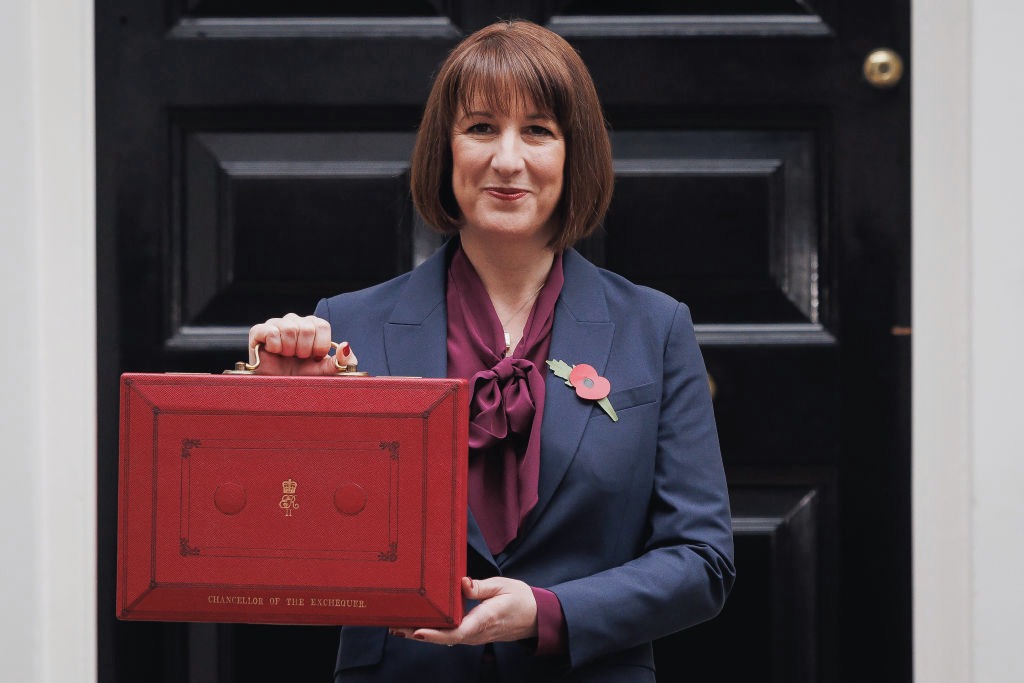After the Office for Budget Responsibility’s assessment of the Budget was published on Wednesday, the cost of government borrowing started to rise. Yesterday, those costs hit their highest levels this year, with the 10-year gilt yield peaking just over 4.5 per cent and the five-year gilt yield exceeding 4.4 per cent, before settling slightly by the end of the day.
Labour need this trend to stop. The further borrowing costs rise and the pound falls, the more expensive Reeves’s Budget becomes, as investors demand a higher return for lending to the UK. Moreover, the longer jitters persist, the more certain it will seem that markets have not bought Labour’s fiscal proposal to borrow an additional £140 billion over this Parliament. The stakes are high: the Bank of England is reported to be on ‘alert’ while Treasury ministers are trying, as publicly and prominently as possible, to remind markets of their fiscal rules which supposedly keep borrowing in check.
Speaking on BBC Radio 4’s Today programme this morning, the Chief Secretary to the Treasury Darren Jones set out the party’s ‘stability rule’ again, insisting that they would ‘not be borrowing for day-to-day costs’ and would ‘meet that fiscal rule earlier than planned’. Still, the emphasis remained on what came before Labour’s Budget, rather than on what markets are picking through, and making judgements on now. ‘Let’s look at the behaviours we’ve inherited’, said Jones, before quickly being pulled back into talking about the market nervousness created by the Budget.
Jones’s insistence that the UK ‘will no longer have to borrow [every month] to pay the bills’ has been challenged by the latest analysis from the Institute for Fiscal Studies, which has calculated that even with the significant increases in borrowing, and the additional £40 billion raised in tax, Labour will have to come back for more, citing a £9 billion shortfall to maintain public service spending. The problem with this calculation, says Jones, is that it assumes no productivity gains or public sector reform. ‘They’re in a poor place’ he said of the services.’They’re not performing as well as they should do. That’s why public sector reform is as important as growth in the economy.’
But the outstanding problem for Labour is that neither those reforms nor that growth has been clearly presented to markets. Despite lots of talk of reform in Labour speeches and public policy circles, the really big overhauls – including the NHS – have not had any detail attached to them yet. ‘For the first time the NHS Budget has tipped over £200 billion pounds a year’ the chief secretary said on Today, ‘but everyone recognises that the system is broken’. This may be a large part of the problem, and explain some of the market reaction: the NHS was just given a top-up of over £20 billion for day-to-day spending, without any mandate for improvements, lower waiting lists or efficiency gains attached to the money. With day-to-day spending ramping up significantly, not even the significant tax hikes are currently convincing markets that all the bills really are paid for – or that they’re not going to be asked for more cash in the future.
Meanwhile the government is in no position to say that the money will be found through growth measures, after the OBR published very disappointing forecasts for the next five years, which actually downgrade GDP estimates in the latter half of this Parliament. For all the pain of tax hikes, and all that additional borrowing, where are the gains? Ministers will emphasise that the gains come in the longer-term, when capital investment is realised as new infrastructure, new transport and new hospitals. There is merit in this point, but markets have to be convinced that the pathway there is sustainable, and that the money spent on those projects is really going to lift the economy. So far, they seem rather unconvinced.
While it’s important to note the differences between what’s happening now and what happened after the publication of the mini-Budget (borrowing costs rose much faster, the pound dropped much further), there is a specific similarity worth noting. In the run-up to Liz Truss entering No. 10, there was an assumption on the part of Trussonomics backers that the markets would see the bigger vision for the UK economy, and would be willing to lend to Britain during that transition process: one that would hopefully lead to better services and higher growth.
That assumption turned out to be wrong. One wonders if Labour had similar hopes – which markets, for now, seem to be dashing.
Listen to more on Coffee House Shots:







Comments